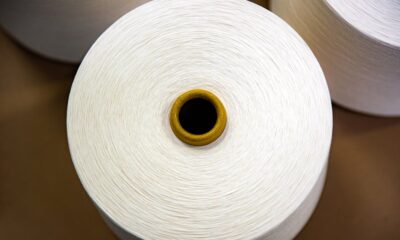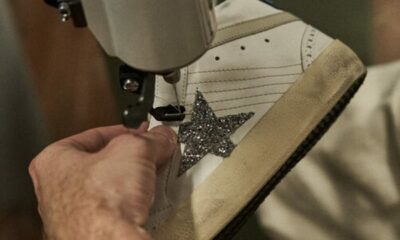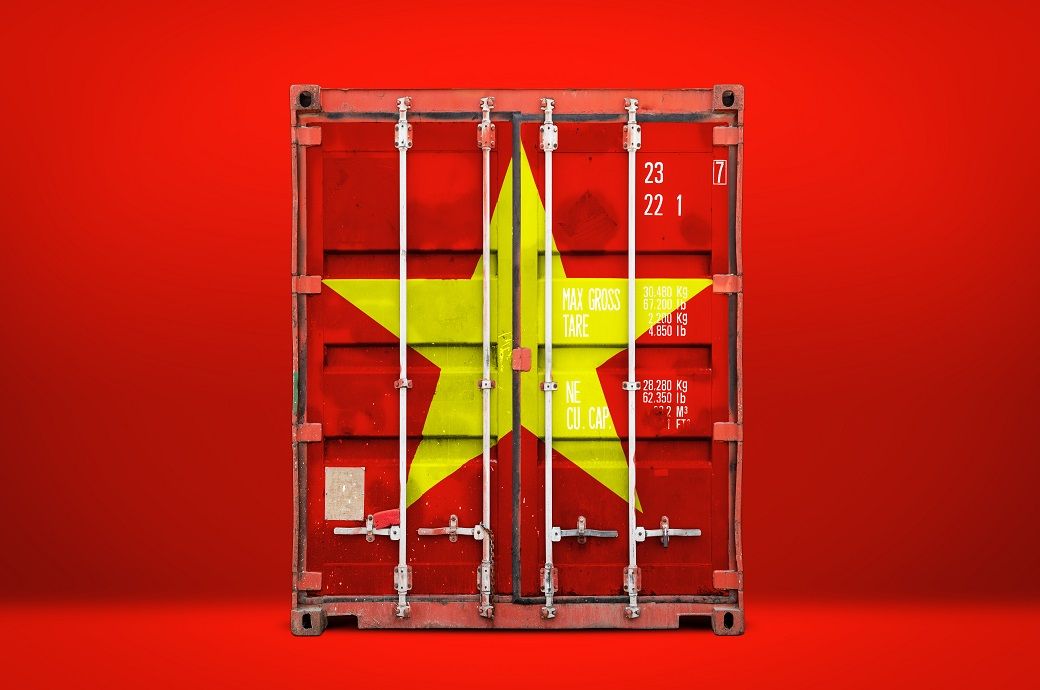Fashion
Swiss watch exports drop sharply amid weak China demand and US tariffs
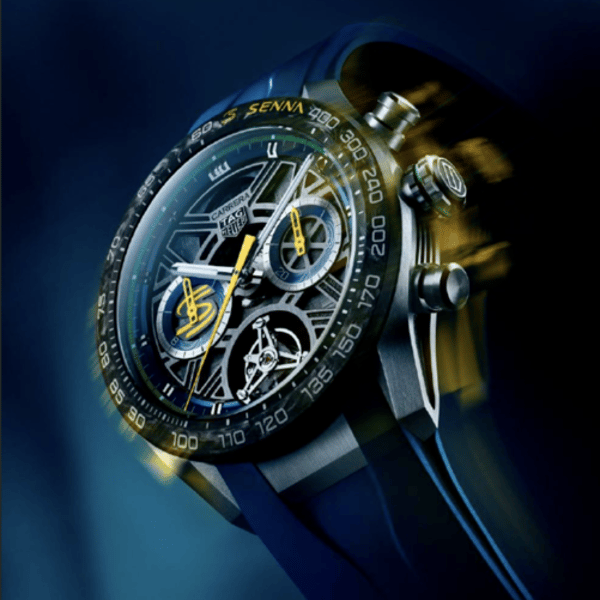
By
Bloomberg
Published
September 18, 2025
Swiss watch exports tumbled in August as Chinese demand remained weak and stiff US tariffs went into effect.
Exports fell about 17% from a year earlier, the Federation of the Swiss Watch Industry said in a statement Thursday. All main markets saw double-digit declines, with China down 36% and the US — the watch industry’s largest market — falling 24%.
To an extent, the plunge reflected an expected rebalancing following the high level of exports seen in April and July, ahead of anticipated tariffs, according to the statement.
Still, the figures highlight the more challenging conditions for Swiss-based watchmakers, including those controlled by Richemont, Swatch Group AG, and LVMH, as well as independents such as Audemars Piguet, Patek Philippe, and Rolex SA. Swatch shares fell as much as 2.1% and Richemont dipped 0.7% in early trading.
“The broad-based downturn underscores the formidable headwinds the Swiss watch industry continues to face,” Vontobel analyst Jean-Philippe Bertschy said in a note. “Recent reports from several watch brands suggested pockets of resilient US demand and a tentative stabilization in China. Today’s data, however, largely negates those signals,” he said.
The 39% levy the US applied on Switzerland — higher than the European Union and other developed economies — went into effect on Aug. 7 and has shaken the watchmaking industry. Many producers had rushed to build up inventory in the US to avoid tariffs.
One opted for a creative way to nudge the Swiss government to reach an agreement with the US. Swatch last week unveiled a special tariff edition priced at 139 Swiss francs ($176) and sold only in Switzerland. On the dial, the numbers three and nine are reversed — a nod to the 39% duty. The model will be pulled from stores once a new deal is made, according to a spokesperson.
Last Friday, U.S. Commerce Secretary Howard Lutnick struck a more positive tone and predicted that the U.S. would eventually reach a trade deal with Switzerland. The latest talks were described as “constructive.”
Fashion
Suzhou Tianyuan lifts accuracy to 98% with Coats Digital’s GSDCost
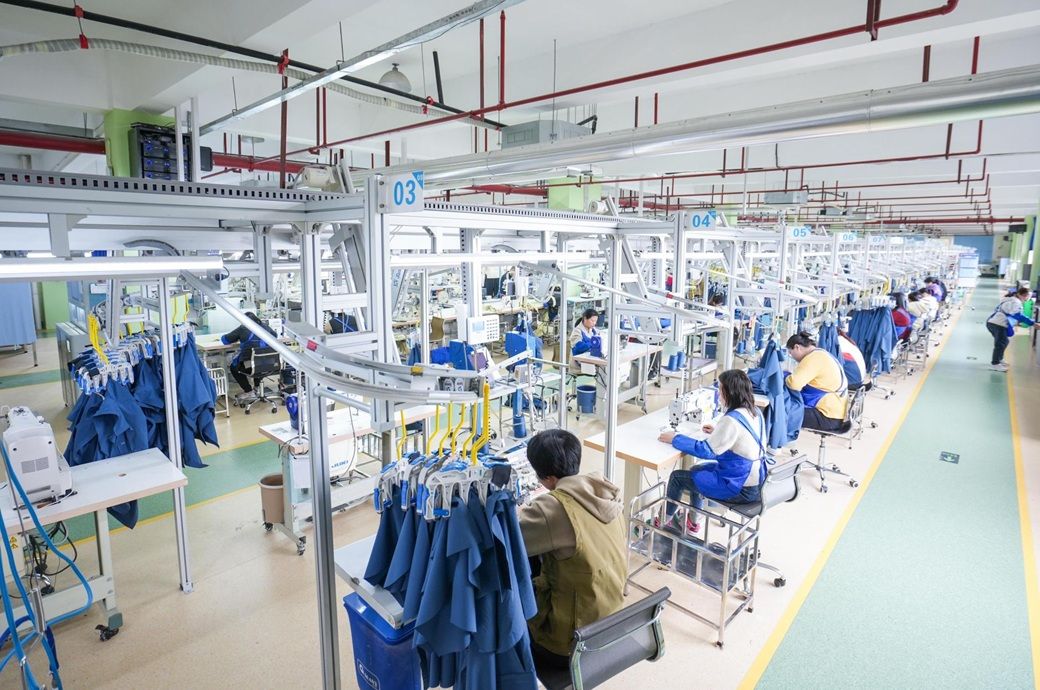
Through the digitization of its production processes, Tianyuan has improved SMV calculation accuracy to 98%, shortened new product process analysis time from four days to one, and reduced sample garment development cycles by 25%.
Suzhou Tianyuan achieved 98 per cent SMV accuracy after adopting Coats Digital’s GSDCost.
Process analysis efficiency rose 60 per cent, cutting new product analysis time to one day and reducing sample development cycles by 25 per cent.
Cost estimation accuracy improved to 95 per cent, while on-time delivery reached 96 per cent and material waste fell by 2 per cent.
Founded in Suzhou, Tianyuan Garments employs over 5,000 people and produces more than 26 million garments annually, including sportswear, shirts, trousers, coats, down jackets, and technical outerwear. Certified under the ISO9001 Quality Management System and the BSCI Social Responsibility System, Tianyuan has been honoured with the Adidas Global Supplier Award for four consecutive years.
Before adopting GSDCost, Tianyuan’s standard minute value (SMV) calculations were largely based on engineers’ individual experience, resulting in variations of up to 30% across production lines. The lack of consistent data meant that process analysis for new products could take several days, often producing inaccurate results. The increasing need for faster turnarounds and more fragmented, complex orders highlighted the necessity for a more agile, scientific approach.
Hailan Chen, Industrial Engineering Director at Suzhou Tianyuan, said: “Before implementing GSDCost, SMV calculations relied heavily on engineers’ experience, resulting in variations of up to 30% across different production lines. New product process analysis consequently, took three to four days. As fast fashion and fragmented orders became more prevalent, traditional methods struggled to meet brands’ demands for a rapid response.”
Recognising rising industry costs and the need to strengthen competitiveness, Tianyuan began its digital transformation journey three years ago.
Mr. Tang, General Manager at Suzhou Tianyuan, said: “Amid rising costs and shifting production capacities across the global apparel manufacturing industry, we identified digital transformation as our strategic solution. Before implementing GSDCost, although we served as a contract manufacturer for well-known brands, our cost control methods were inefficient and manual, leading to a year-on-year decline in profit margins.”
The implementation of GSDCost played a pivotal role in achieving the company’s strategic goals of higher transparency, efficiency, and profitability. With GSDCost onboard, Tianyuan quickly established a unified digital process platform that standardised SMV calculations across all operations.
Hailan Chen added: “After adopting GSDCost, our SMV calculation accuracy has now improved to 98%, and new product process analysis time has been shortened to just one day—increasing the quotation efficiency by over 60%.”
For complex functional apparel orders, GSDCost’s intelligent matching feature enables Tianyuan to complete process breakdowns in just a few hours—a task that previously took days.
“The standardised operation library in GSDCost also helped us reduce sample garment development cycles by 25%, securing a critical competitive advantage in an increasingly demanding market,” explained Hailan Chen.
Mr. Tang added: “By digitizing the entire process from order placement to shipment, Tianyuan achieved three major breakthroughs. First, the accuracy of cost estimation improved from 75% to 95%, strengthening our negotiation power and enabling us to secure partnerships with premium clients such as Adidas. Second, we established a real-time production management system, increasing on-time delivery performance to 96% and reducing material waste by approximately 2%. GSDCost has become the core engine driving our transformation from manufacturing to smart manufacturing.”
GSDCost, Coats Digital’s method analysis and predetermined times solution, is widely acknowledged as the de facto international standard across the sewn products industry. It supports a more collaborative, transparent, and sustainable supply chain in which brands and manufacturers establish and optimise ‘International Standard Time Benchmarks’ using standard motion codes and predetermined times. This shared framework supports accurate cost prediction, fact-based negotiation, and a more efficient garment manufacturing process, while concurrently delivering on CSR commitments.
Boris Lu, Customer Success Manager at Coats Digital, said: “The success of the GSDCost project at Suzhou Tianyuan Garments demonstrates the profound value of digital transformation in apparel manufacturing. During the implementation process, we worked closely with the Tianyuan team to deeply integrate industry expertise with system functionalities, building a standardised database covering over 50,000 processes. This has enabled Tianyuan to make faster, more accurate production decisions, optimise processes across multiple lines, and strengthen both its competitiveness and operational resilience.”
Key Benefits and ROI for Suzhou Tianyuan
- 98% accuracy in SMV calculation
- 60% improvement in process analysis efficiency
- 25% reduction in sample development cycles
- 95% accuracy in cost estimation
- 96% on-time delivery performance
- 2% reduction in material waste
Note: The headline, insights, and image of this press release may have been refined by the Fibre2Fashion staff; the rest of the content remains unchanged.
Fibre2Fashion News Desk (MS)
Fashion
Nov 2025 producer prices in Germany down 2.3% YoY: Destatis
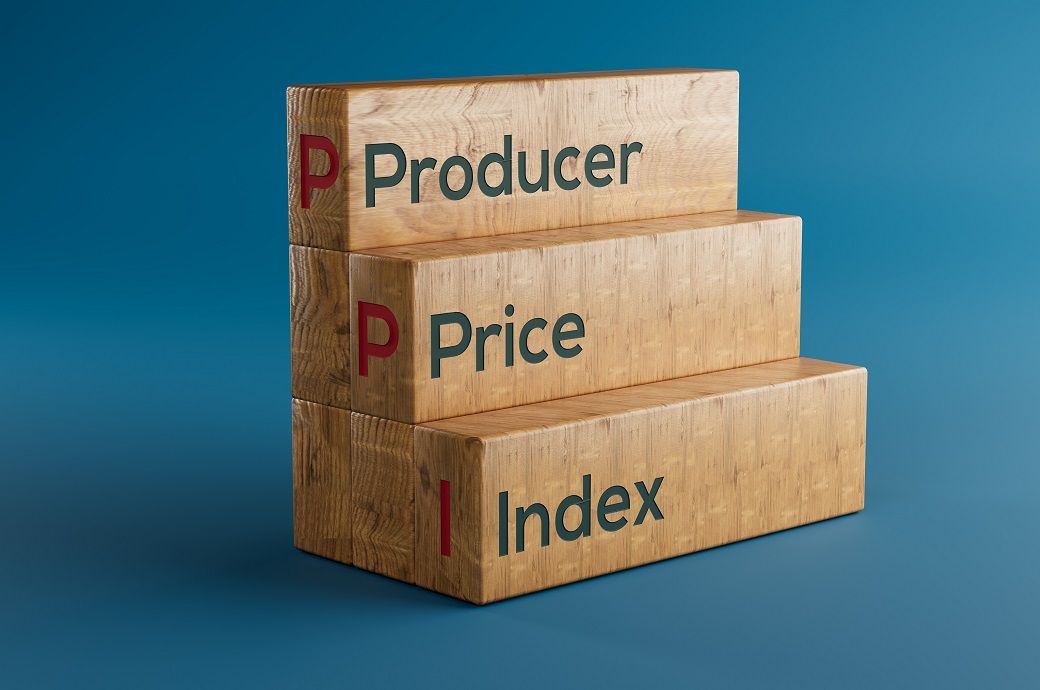
Lower energy prices continued to be the main reason for the YoY decline.
Intermediate goods prices in the month were 0.2 per cent lower YoY. By contrast, capital goods, non-durable consumer goods and durable consumer goods cost more than a year earlier.
The producer prices of industrial products in Germany were 2.3 per cent lower year on year (YoY) in November this year, official statistical show.
These remained unchanged month on month (MoM) in the month.
Lower energy prices continued to be the main reason for the YoY decline.
When energy prices are excluded, producer prices in November 2025 rose by 0.8 per cent YoY and down by 0.1 per cent MoM.
When energy prices are excluded, producer prices in November 2025 rose by 0.8 per cent YoY and down by 0.1 per cent MoM, a Destatis release said.
Energy prices in November were down by 9 per cent YoY and up by 0.2 per cent MoM; natural gas prices declined by 14.2 per cent YoY.
Capital goods prices in November were up by 1.9 per cent YoY and remain unchanged MoM.
Non-durable consumer goods produced and sold in Germany were 1.3 per cent more expensive YoY; these were down by 0.9 per cent MoM.
Durable consumer goods cost 1.8 per cent more YoY in November 2025.
Fibre2Fashion News Desk (DS)
Fashion
Vietnam sees robust export growth in 2025 despite US tariffs
-
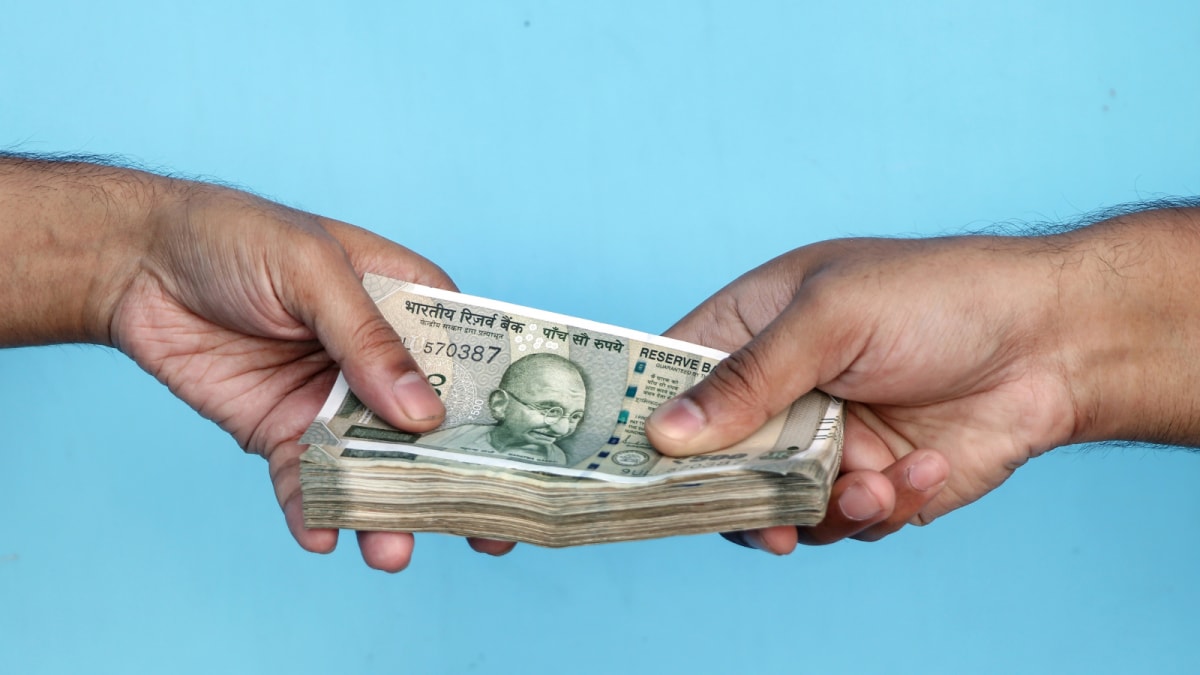
 Business1 week ago
Business1 week agoHitting The ‘High Notes’ In Ties: Nepal Set To Lift Ban On Indian Bills Above ₹100
-
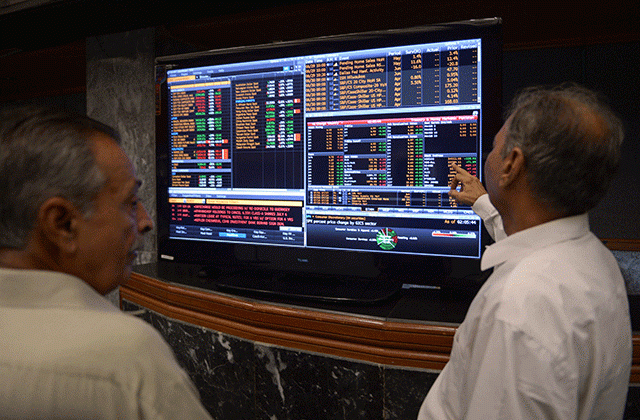
 Business7 days ago
Business7 days agoKSE-100 index gains 876 points amid cut in policy rate | The Express Tribune
-

 Sports7 days ago
Sports7 days agoJets defensive lineman rips NFL officials after ejection vs Jaguars
-

 Business7 days ago
Business7 days agoStudying Abroad Is Costly, But Not Impossible: Experts On Smarter Financial Planning
-

 Tech1 week ago
Tech1 week agoFor the First Time, AI Analyzes Language as Well as a Human Expert
-

 Entertainment7 days ago
Entertainment7 days agoPrince Harry, Meghan Markle’s 2025 Christmas card: A shift in strategy
-

 Business4 days ago
Business4 days agoBP names new boss as current CEO leaves after less than two years
-

 Fashion4 days ago
Fashion4 days agoIndonesia’s thrift surge fuels waste and textile industry woes








